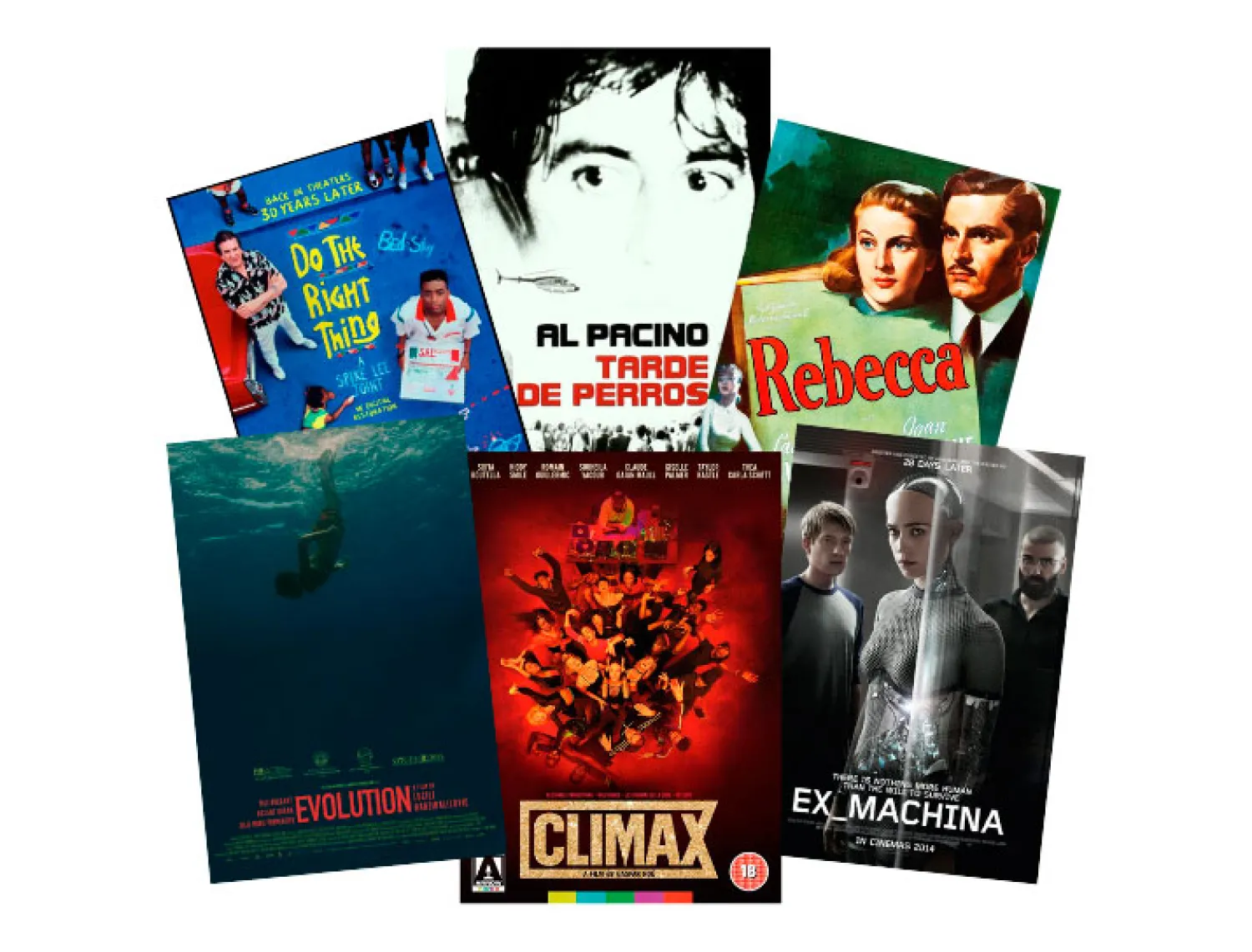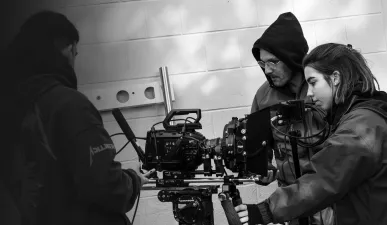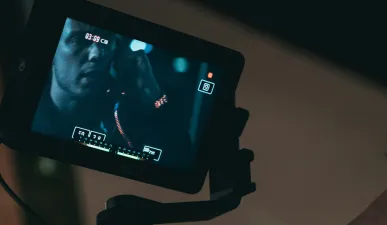Do you know what it takes to become a film critic? If you are one of those people who, after watching a movie, love to analyze and comment on their perception with the rest of the world, you may have at some point considered delving into the field of film criticism. If you're looking to get started in film analysis, you're in the right place. Today we bring you 5 tips that will help you perfect your critical skills and develop as a true professional in the field.
In addition, we inform you that this November we open call for our annual film analysis workshop, 25 film looks, in which we will analyze 25 essential films from the world of cinema. And, best of all? We will have the assistance of some of the most renowned critics and professionals of the sector at national level and we will know their views through the filmic analysis of these 25 works that will take us on a journey through the history of auteur cinema, from 1928 to the present.
5 tips to become a good film critic
Before anything else, it is necessary that we define what the role of the film critic is. This is a professional in the study and analysis of film works, with the ability to unravel what lies behind the film discourse itself. The critic captures the message, evaluates the way in which it is transmitted and how the execution of each of the parts that make up the film as a whole has been carried out, all from an analytical gaze, which goes beyond his own tastes and preferences.
To be able to do all this requires a series of deep knowledge about the world of cinema, the ability to perceive and raise issues beyond the gaze of the average viewer, and to know how to transmit it through writing. Want to know how to do it? Pay attention to these 5 tips we bring you to become a good film critic:
- Do you know what is the process followed to bring a film to life? This is one of the important points you should be clear about if you want to dedicate yourself to criticism. We recommend that before talking about something, you go deep into it. That's why at FX, our students work in a transversal way between different departments.
- Knowing about the history of cinema is also important. Keep in mind that it is not the same to criticize a film from 50 years ago than a premiere. Each film has its own historical context, and the way of making films has changed over time, not only on a technical level, but also through language.
- Read reviews and get to know the professional critics of the moment is essential to broaden horizons and discover new perspectives. You can't get started in something without knowing how those who have been doing it for years work.
- Nurture your film log. Watch a lot of movies and build up a library of references that will allow you to observe similarities between filmmakers and be aware of their evolution.
- Finally, write. Write a lot. Practice makes perfect, so set yourself some goals and stick to them. After enough time has passed, you can re-watch and analyze the films you started with, and thus observe your own development.
A critical look with the best professionals in the sector
We encourage you to attend what will be an intense and enriching experience, which will allow you to delve into different topics and critically evaluate the selected pieces, through a dynamic debate with some of the best professionals in the world of cinema on a national scale.
We will feature personalities such as Quim Casas, one of the most renowned critics in our country; Desirée de Fez, journalist and film critic specializing in the fantasy and horror genre; Ángel Sala, writer, screenwriter, critic and director of the Sitges International Film Festival; Màrius Rubio, film director, part of the team of our production company SenoraX; Fabricio D'Alessandro, director and CEO of FD Media, as well as Head of Master and Professor at FX ANIMATION; and Manu Yáñez, film critic and journalist in various media.
25 essential films of auteur cinema
25 looks at cinema will provide you with a global vision of the history of cinema, observing its evolution in recent years, and analyzing each piece through the work of its author, taking into account each of the tools used for its execution.
Here we name you the 25 titles that will be addressed during the next 5 months:
- The Docks of New York by Joseph Von Stenberg - 1928
- Yours Forever by Dorothy Arzner - 1932
- A Woman for Two by Ernst Lubitsch - 1933
- Rebecca by Alfred Hitchcock - 1940
- Stromboli by Roberto Rossellini - 1950
- The Quiet Man by John Ford - 1952
- The Pleasure by Max Ophüls - 1952
- Splendor in the Grass by Elia Kazan - 1961
- Pierrot, the madmanby Jean-Luc Godard - 1965
- At the Chance of Balthasar by Robert Bresson - 1966
- Dogs' Afternoon by Sidney Lumet - 1975
- The Betrayal of Mikey by Elaine May - 1976
- In Company of Wolves by Neil Jordan - 1984
- Do What You Must by Spike Lee - 1989
- The Living Graveyard by Mary Lambert - 1989
- The King of New York by Abel Ferrara - 1990
- Flowers of Shanghai by Hou Hsiao Hsien - 1998
- Take. Shelter by Jeff Nichols - 2011
- Ex Machina by Alex Garland - 2014
- Evolution by Lucile Hadzihalilovic - 2015
- The Death of Louis XIV by Albert Serra - 2016
- The Future by Mia Hansen. Löve - 2016
- Estiu 93 by Carla Simón - 2017
- Clímax by Gaspar Noe - 2017
- The Invisible Thread by Paul Thomas Anderson - 2017
The workshop will take place every Thursday starting this November, until June 2023, and each class will begin with the screening of the film to be discussed during the session. Those who want to attend can sign up for different vouchers depending on the sessions in which they wish to participate, being 5, 10, 15, 15, 20 or 25 films each voucher. If you want to know more, request more information through our contact form. We are waiting for you!
.



